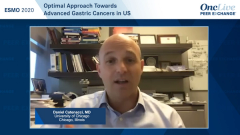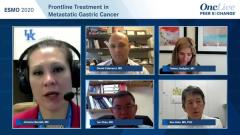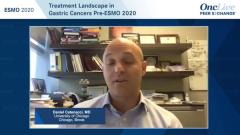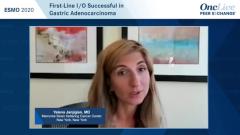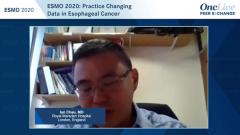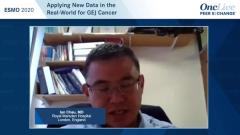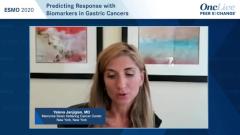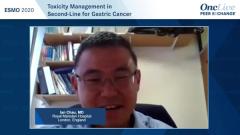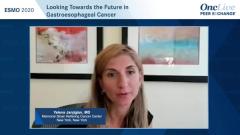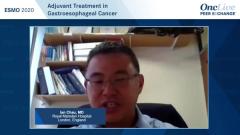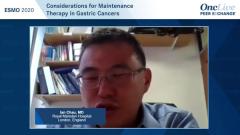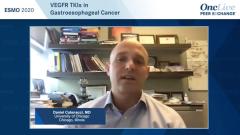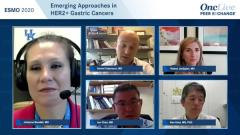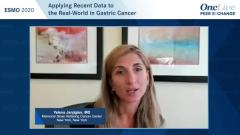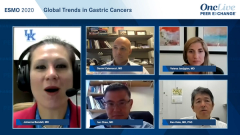
Looking Toward the Future in Gastroesophageal Cancer
Episodes in this series

Transcript:
Johanna Bendell, MD: Let’s try to bring it on home. We now have new treatment options, we probably have new algorithms for treatments for our patients with gastroesophageal [GE] cancers. And if we break it down into esophageal, squamous cell, GE junction adenocarcinoma, and gastric cancers, how are we now going to approach these diseases? Dan, you gave us the ghost of GE cancers past. What is now the ghost of GE cancers future?
Daniel Catenacci, MD: I think that it’s going to depend on the regulatory approvals, which we should hear within the next months, and they may be actually different across the geographical region, just as they have been with all of these other studies previously. That said, what I would anticipate, in the United States at least, would be the approvals as they did with KEYNOTE-181 [NCT02564263] in the first-line setting, at least squamous cell CPS [combined positive score] 10 or higher. We’ll see how the FDA feels that day, whether they’re going to lower that bar and allow all esophageal squamous cell and all adenocarcinomas or not. For me, again I’d really like to see those data before I would routinely be using that, certainly now before any approvals and before publication, to really see those data further for esophageal cancer. The reassuring and nice thing is that we will be able to get this drug to the patient who will benefit most immediately in the first line.
Johanna Bendell, MD: Yelena, any other thoughts?
Yelena Janjigian, MD: It’s important to consider the benefit and the duration of benefit and the options for the second- and third-line setting as our first-line treatment options are becoming more effective. I strongly believe that more patients will remain well and receive second- and third-line therapies. In the first-line setting, 5-fluorouracil platinum is the standard with combination immune checkpoint inhibitors likely for the vast majority of the patients. Looking at the numbers, 60% of the patients in CheckMate-649 [NCT02872116] were CPS greater than or equal to 5, and certainly depending on what the subset analysis in overall benefit will be in CPS 1 or CPS 0 patients, we may have those options.
Sometimes folks ask me, well what about HER2? Should we consider immunotherapy in HER2-positive patients? It’s important to know that CheckMate-649 excluded HER2+ patients. If you were HER2+, you were excluded, and patients with HER2-negative or unknown were included on the study. So it’s critical to continue to test for HER2 and to enroll those patients on different studies or outside of a trial to consider trastuzumab as the standard of care.
The practice at this point has not changed for HER2+ tumors, and there are some data to suggest that combination of immune checkpoint inhibitors plus anti-HER2 therapy is helpful, and we’ll hopefully see the confirmatory data in the first-line setting. Certainly, in the second- and third-line setting, antibody-drug conjugates such as trastuzumab deruxtecan has been dominating the field. Irreversible selective HER2 inhibitors such as tucatinib are very exciting and something to watch out for. For HER2, that’s a piece of the story that we’re still developing. Please continue to test patients for HER2 and to direct them to HER2-directed therapies.
Transcript Edited for Clarity


